Municipal Kitchens
29 Jun - 18 Aug 2024
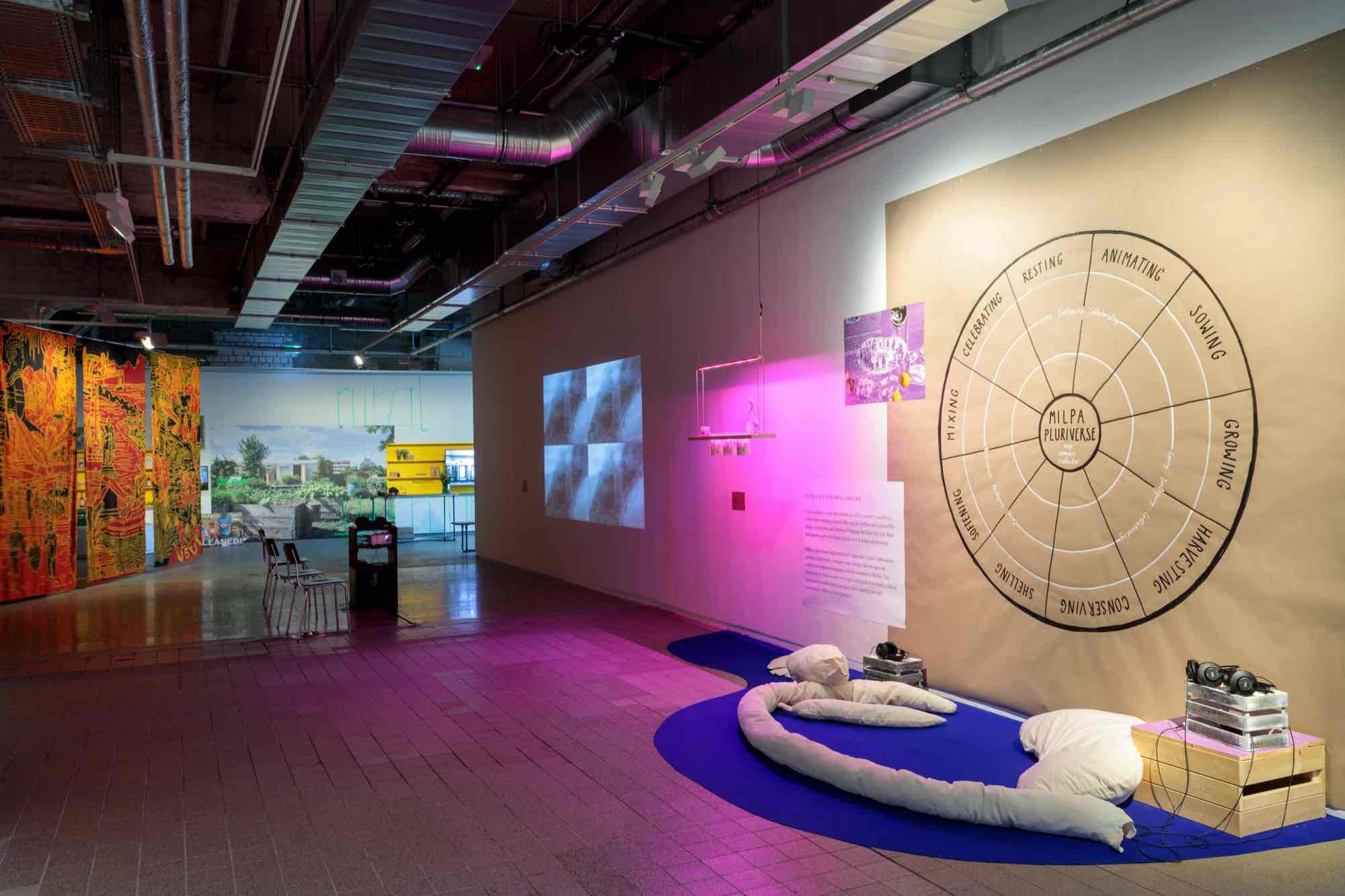
Municipal Kitchens, Neue Gesellschaft für Bildende Kunst (nGbK), exhibition view. Photo: Benjamin Renter
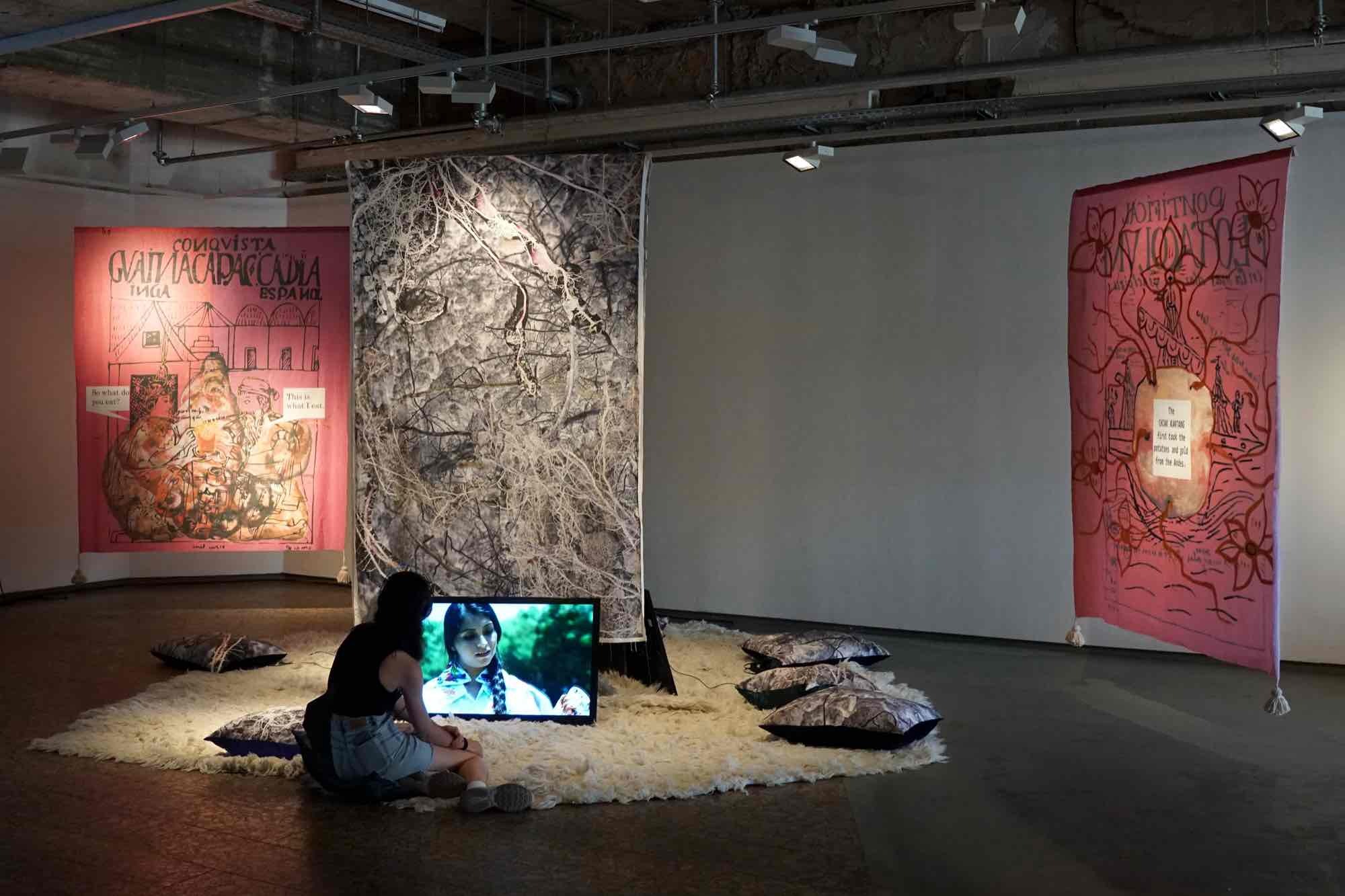
Municipal Kitchens, Neue Gesellschaft für Bildende Kunst (nGbK), exhibition view. Photo: Benjamin Renter
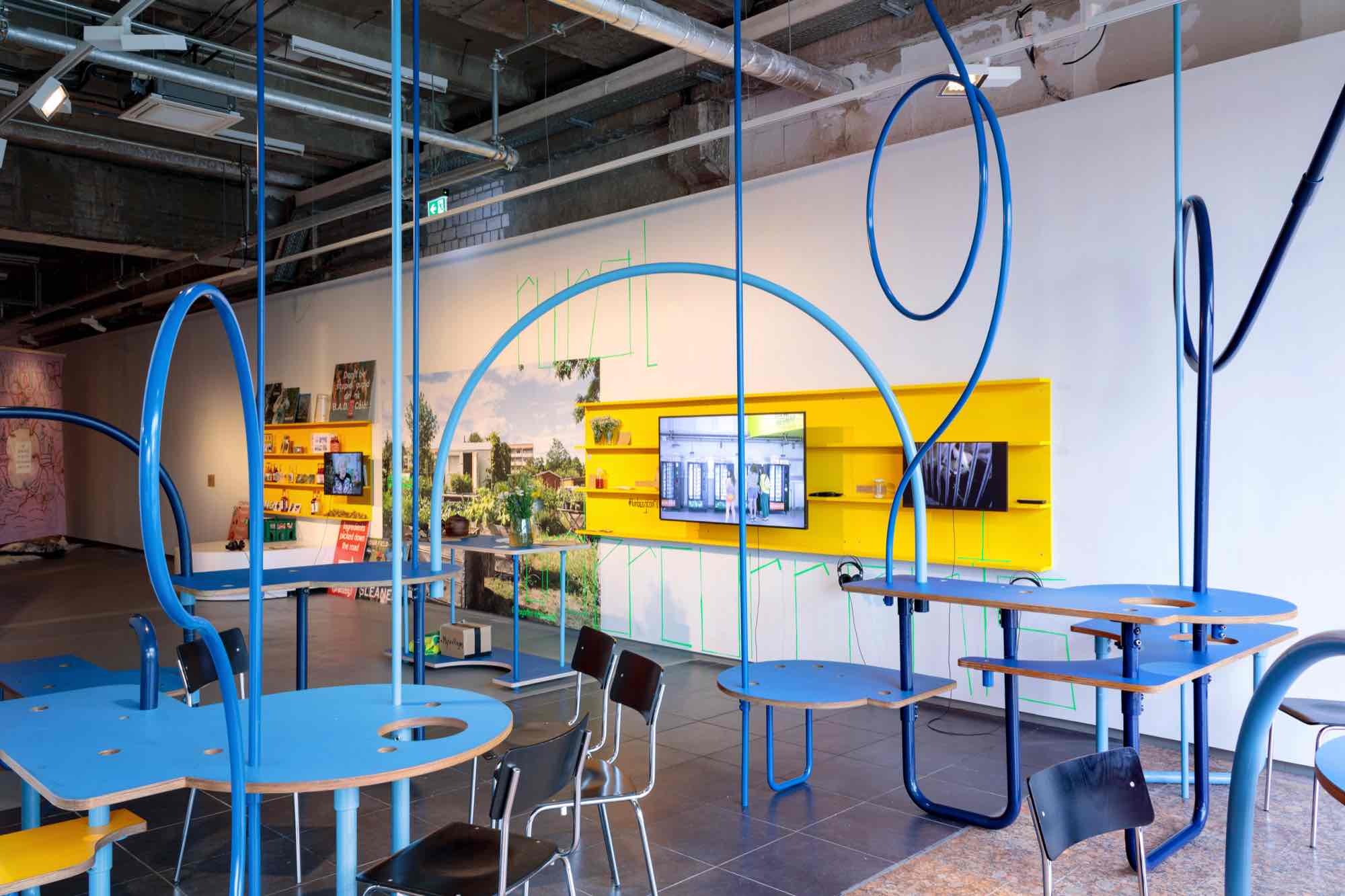
Municipal Kitchens, Neue Gesellschaft für Bildende Kunst (nGbK), exhibition view. Photo: Benjamin Renter
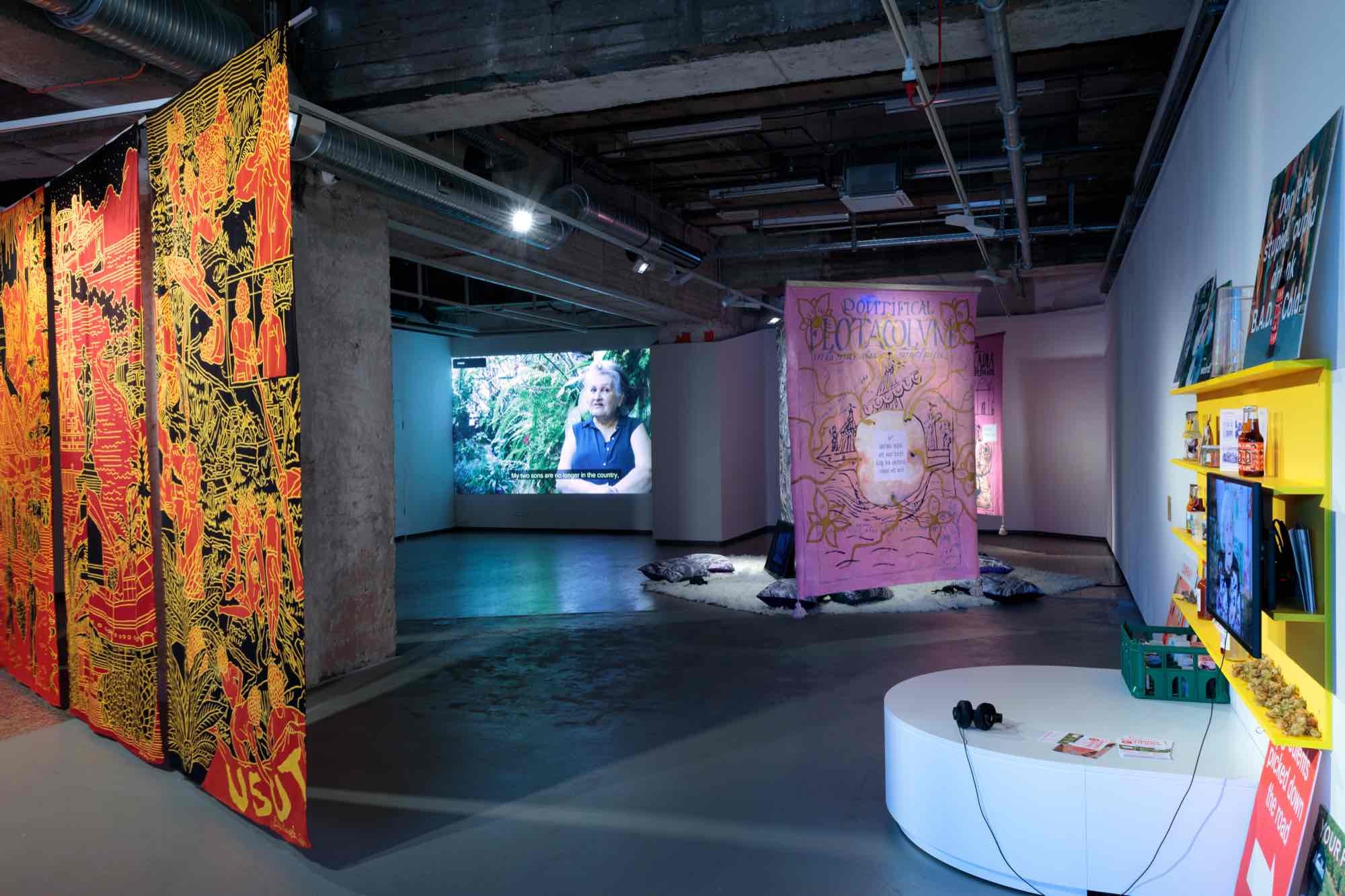
Municipal Kitchens, Neue Gesellschaft für Bildende Kunst (nGbK), exhibition view. Photo: Benjamin Renter
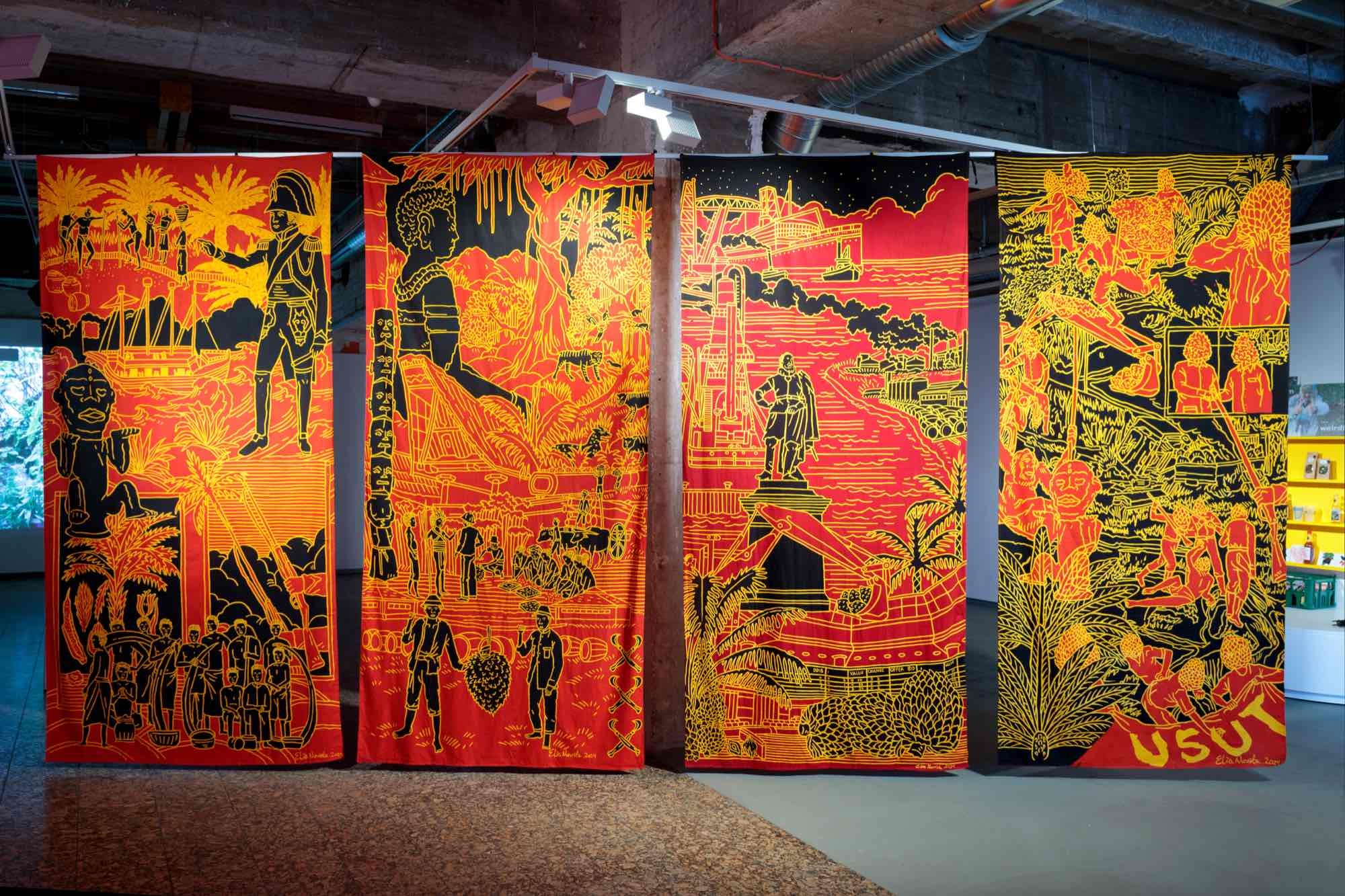
Municipal Kitchens, Neue Gesellschaft für Bildende Kunst (nGbK), exhibition view. Photo: Benjamin Renter
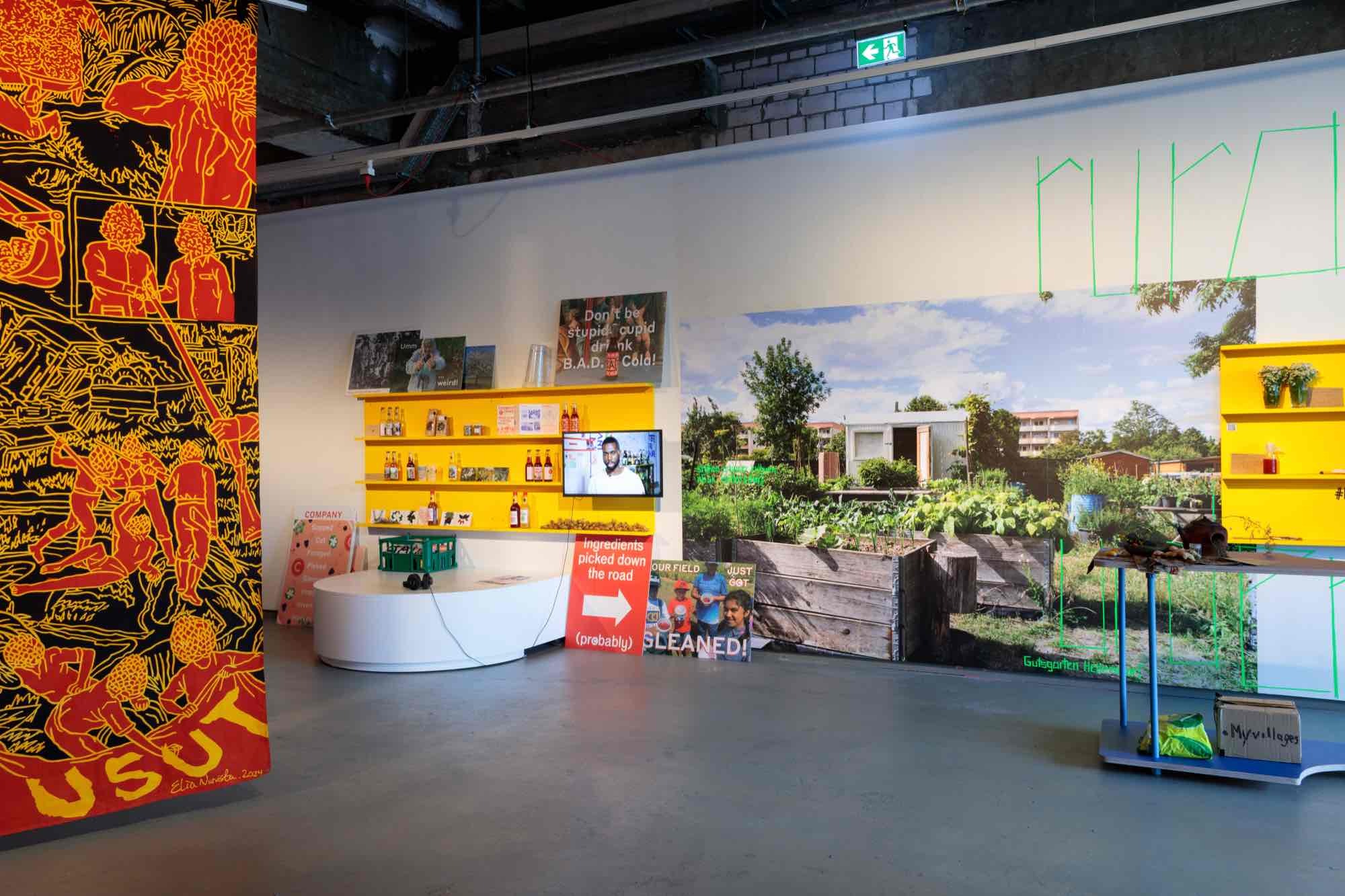
Municipal Kitchens, Neue Gesellschaft für Bildende Kunst (nGbK), exhibition view. Photo: Benjamin Renter
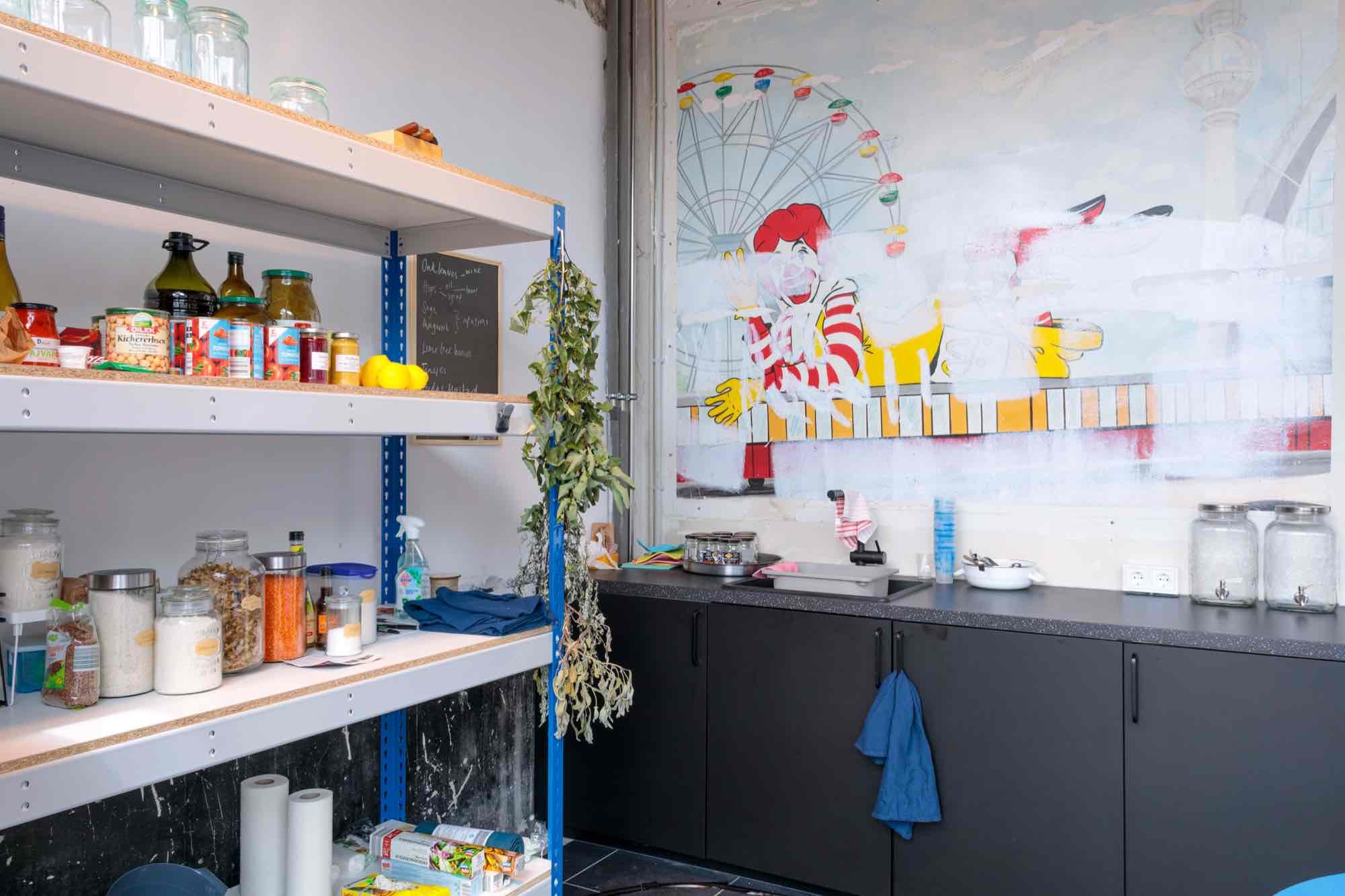
Municipal Kitchens, Neue Gesellschaft für Bildende Kunst (nGbK), exhibition view. Photo: Benjamin Renter
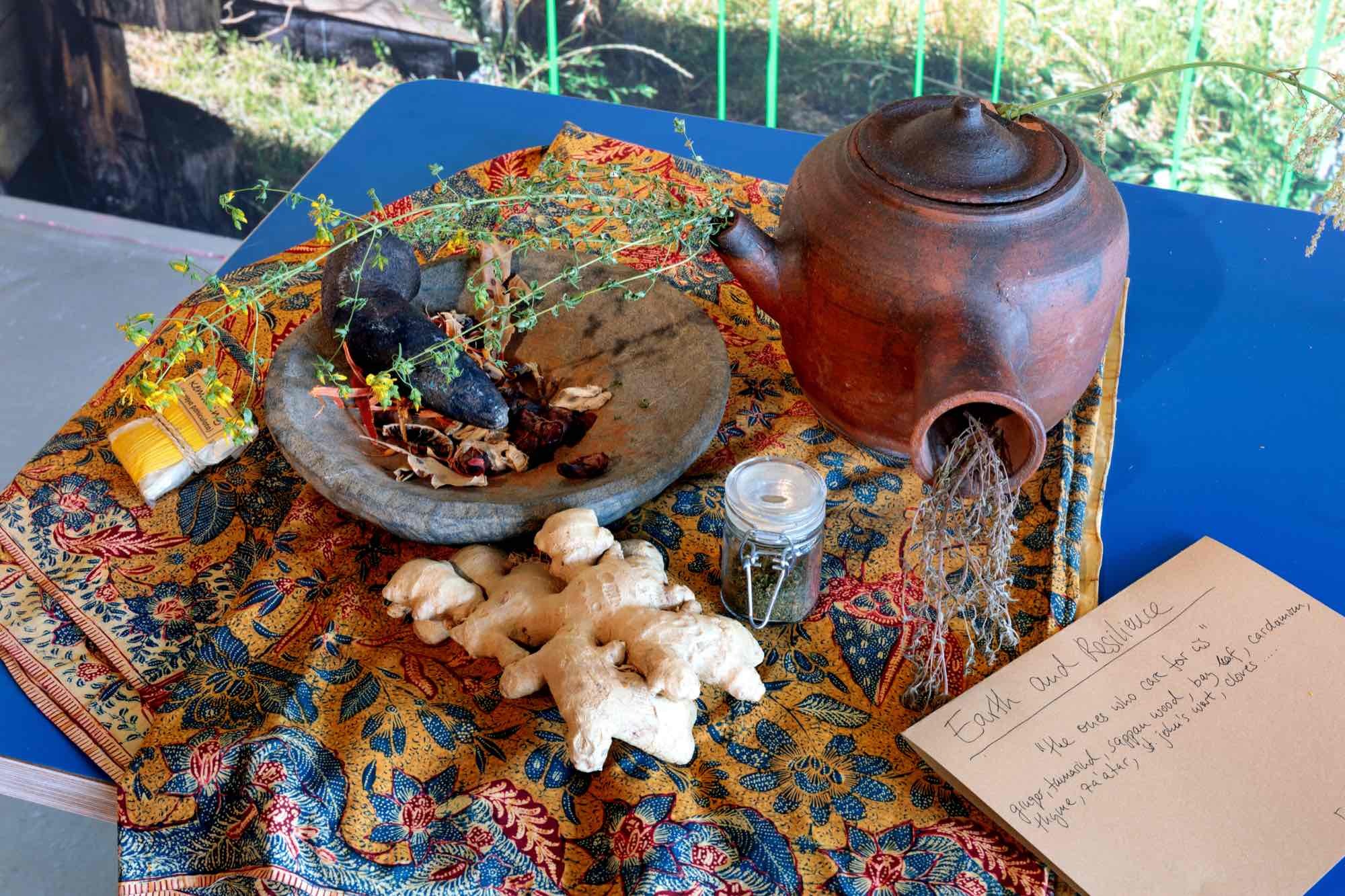
Municipal Kitchens, Neue Gesellschaft für Bildende Kunst (nGbK), exhibition view. Photo: Benjamin Renter
Artists: Alicja Rogalska, Another Provision, Cherry Truluck, Cocina CoLaboratorio, Elia Nurvista, Franziska Pierwoss, Gatari Surya Kusuma / Åsa Sonjasdotter / Daniela Zambrano Amidón, Johann Arens, Mimi Ọnụọha, Myvillages, Pierogi Princesses
Municipal Kitchens reimagines communal eating in cities. The exhibition gathers works by international and local artists and collectives that expose the current state and injustice of food systems, as well as ones that propose new forms of community-based eating. The artworks are accompanied by a weekly event program and free-of-charge communal meals, transforming the nGbK space – previously a fast food restaurant in a former market hall – into a public kitchen.
Municipal Kitchens will bring together a multitude of artistic practices and positions around a central sculptural installation, the ‘kitchen table’, to develop visions for another form of food culture. The surrounding exhibition will feature works that interrogate the current state and injustice of food systems, as well as ones that develop visions for new forms of community-based eating. A project by Gatari Surya Kusuma, Åsa Sonjasdotter, and Daniela Zambrano Amidón breaks down the role of potatoes in international traditions. A Berlin-specific installation and cooking performances by the Cocina CoLaboratorio collective embodies the pluriverse of the “Milpa”, a Mexican crop-growing system. A film work by Franziska Pierwoss dissects the relevance of local supermarkets in times of inflation and the decay of the state. A wall-size installation has been produced by Myvillages, who extend the lumbung network they developed during documenta fifteen to Berlin to make and share drinks in support of local communities. A new tapestry work by Elia Nurvista unpicks the global networks and history of colonial palm oil trade. A video work by Mimi Ọnụọha challenges the narrative of progress by highlighting the discrepancy between production and distribution of food. Johann Arens’ collages from reclaimed display materials draw tender and abstract portraits of the London food venues they have been gathered from. An undercover audio tour of local supermarkets (the Kaufland branch downstairs from nGbK) by Alicja Rogalska introduces a disruption into daily shopping habits. Finally, a specially commissioned historical narrative of the nGbK site on the old Berlin Central Market Hall by writer Annett Gröschner and a collection of further texts allow visitors to explore the research context of the exhibition.
The exhibition space features a working kitchen run by food artist and curator Cherry Truluck and a central table installation created by Another Provision that hosts communal meals and events connecting international struggles and local action. These workshops, talks, performances and actions will be realized collaboratively by the participating artists and Berlin-based food justice organizations – among others Gutsgarten Hellersdorf, Satellit, Torhaus Koch Kollektiv, and Über den Tellerrand, who are working in different locations throughout the city. These co-facilitated events and meals will be free of charge and open to all, creating cumulative engagement with questions such as: How can we make kitchens part of public urban space and de-privatize the labor of cooking? How can food become a common good that connects residents from different communities? What if affordable, around-the-clock meals were available across our cities in spaces that include child care provisions? What if these spaces were community-led? How can food, a deeply personal and often divisive issue, be a source of community connection and collective action? In the process, new trans-disciplinary and international dialogues and solidarities will be sparked.
Municipal Kitchens reimagines communal eating in cities. The exhibition gathers works by international and local artists and collectives that expose the current state and injustice of food systems, as well as ones that propose new forms of community-based eating. The artworks are accompanied by a weekly event program and free-of-charge communal meals, transforming the nGbK space – previously a fast food restaurant in a former market hall – into a public kitchen.
Municipal Kitchens will bring together a multitude of artistic practices and positions around a central sculptural installation, the ‘kitchen table’, to develop visions for another form of food culture. The surrounding exhibition will feature works that interrogate the current state and injustice of food systems, as well as ones that develop visions for new forms of community-based eating. A project by Gatari Surya Kusuma, Åsa Sonjasdotter, and Daniela Zambrano Amidón breaks down the role of potatoes in international traditions. A Berlin-specific installation and cooking performances by the Cocina CoLaboratorio collective embodies the pluriverse of the “Milpa”, a Mexican crop-growing system. A film work by Franziska Pierwoss dissects the relevance of local supermarkets in times of inflation and the decay of the state. A wall-size installation has been produced by Myvillages, who extend the lumbung network they developed during documenta fifteen to Berlin to make and share drinks in support of local communities. A new tapestry work by Elia Nurvista unpicks the global networks and history of colonial palm oil trade. A video work by Mimi Ọnụọha challenges the narrative of progress by highlighting the discrepancy between production and distribution of food. Johann Arens’ collages from reclaimed display materials draw tender and abstract portraits of the London food venues they have been gathered from. An undercover audio tour of local supermarkets (the Kaufland branch downstairs from nGbK) by Alicja Rogalska introduces a disruption into daily shopping habits. Finally, a specially commissioned historical narrative of the nGbK site on the old Berlin Central Market Hall by writer Annett Gröschner and a collection of further texts allow visitors to explore the research context of the exhibition.
The exhibition space features a working kitchen run by food artist and curator Cherry Truluck and a central table installation created by Another Provision that hosts communal meals and events connecting international struggles and local action. These workshops, talks, performances and actions will be realized collaboratively by the participating artists and Berlin-based food justice organizations – among others Gutsgarten Hellersdorf, Satellit, Torhaus Koch Kollektiv, and Über den Tellerrand, who are working in different locations throughout the city. These co-facilitated events and meals will be free of charge and open to all, creating cumulative engagement with questions such as: How can we make kitchens part of public urban space and de-privatize the labor of cooking? How can food become a common good that connects residents from different communities? What if affordable, around-the-clock meals were available across our cities in spaces that include child care provisions? What if these spaces were community-led? How can food, a deeply personal and often divisive issue, be a source of community connection and collective action? In the process, new trans-disciplinary and international dialogues and solidarities will be sparked.
